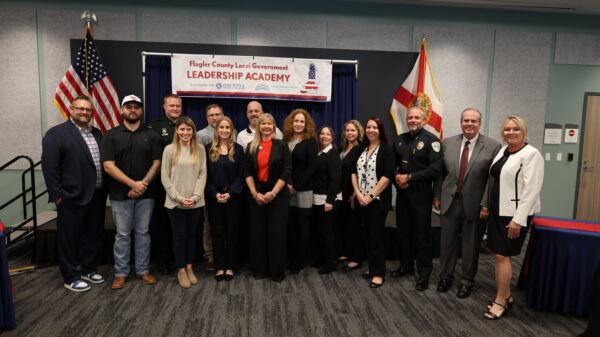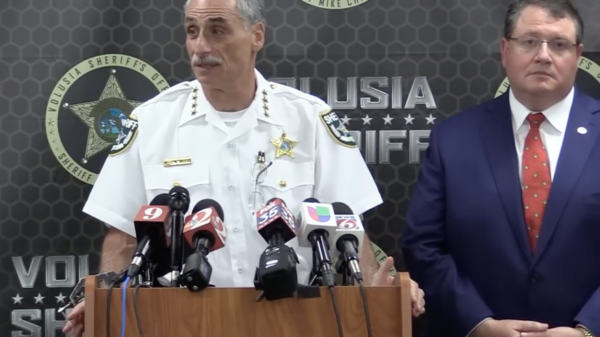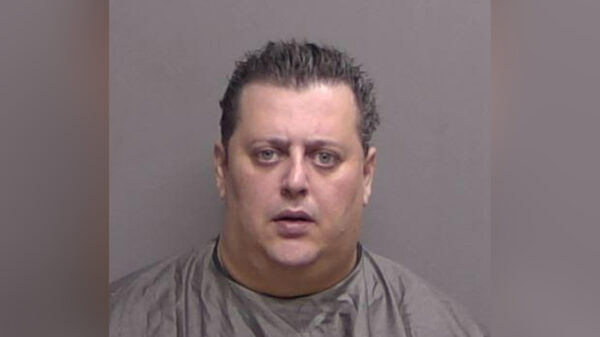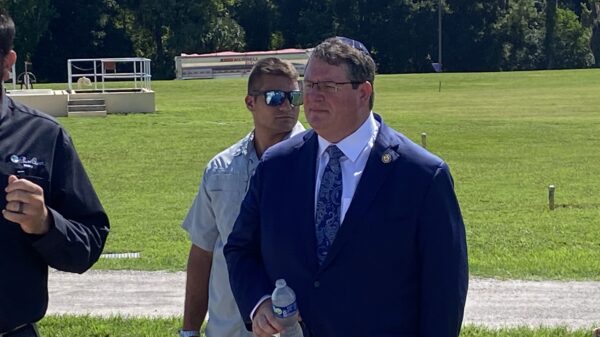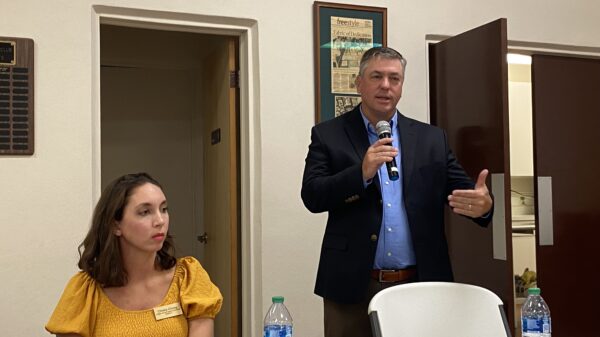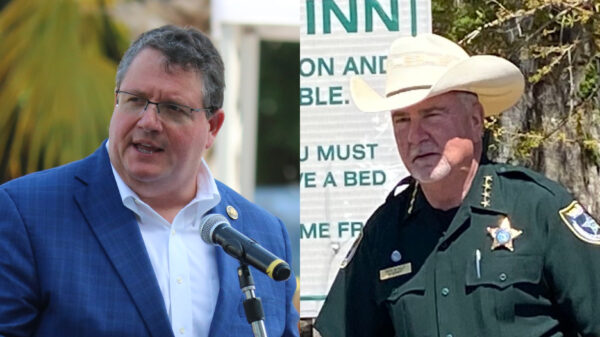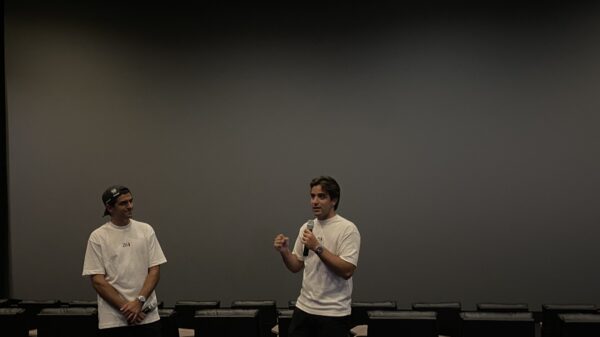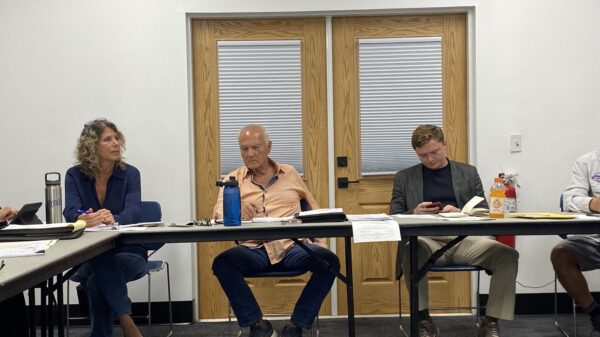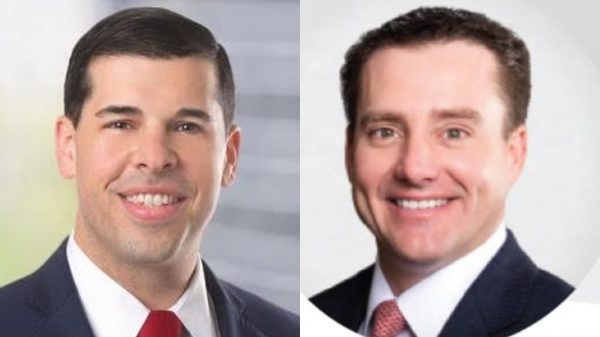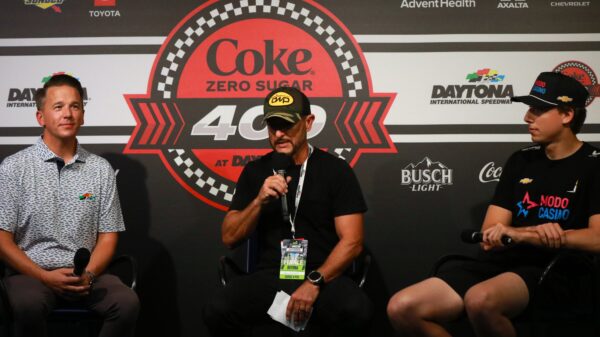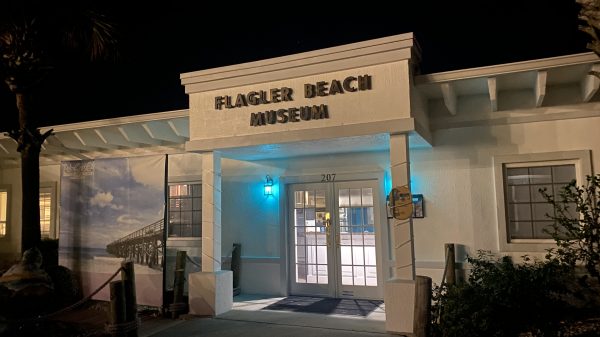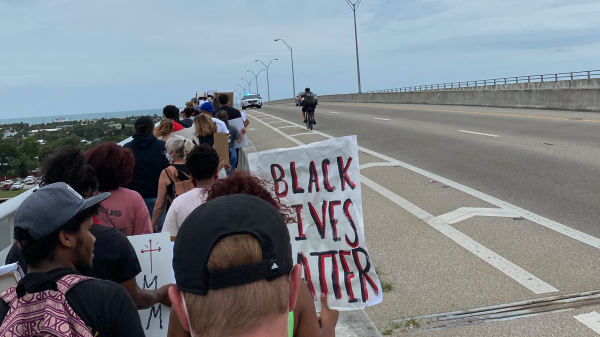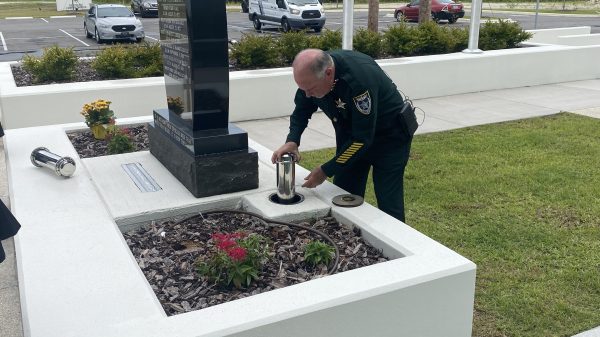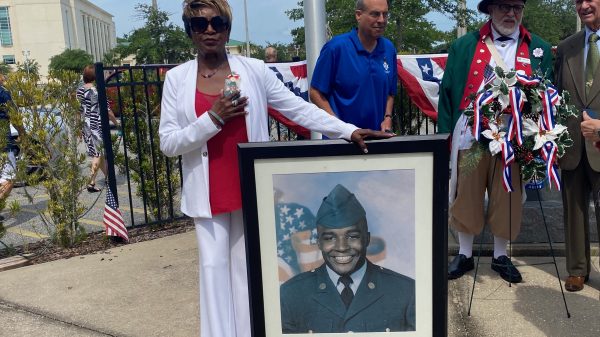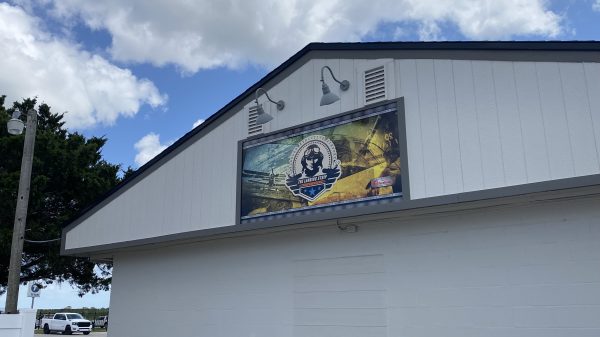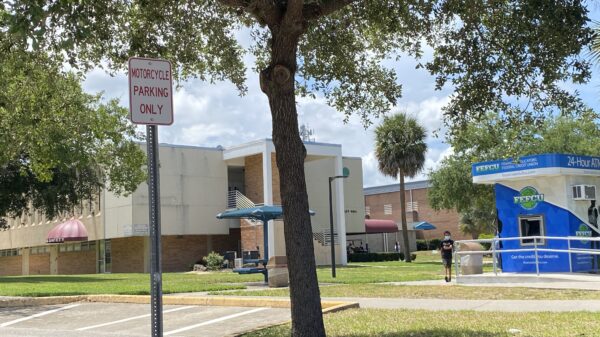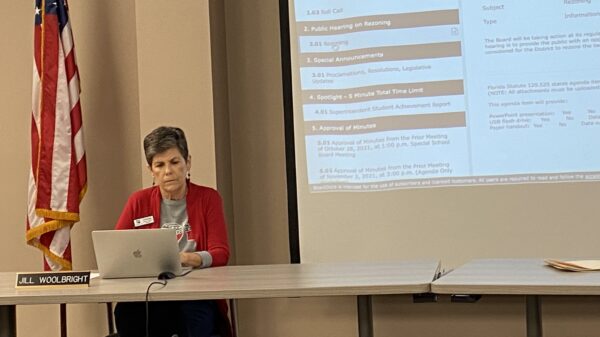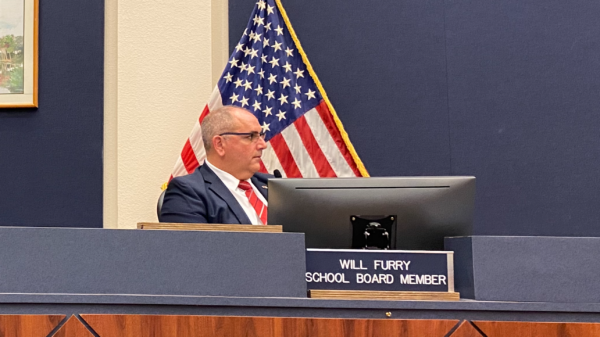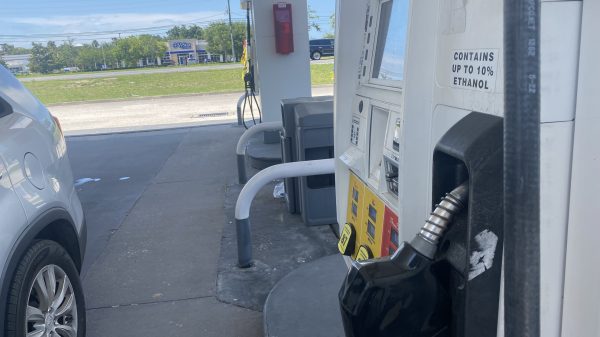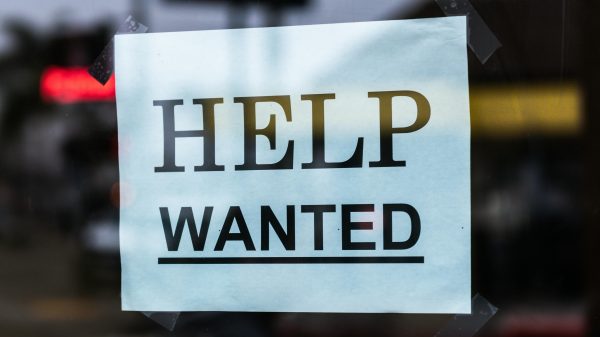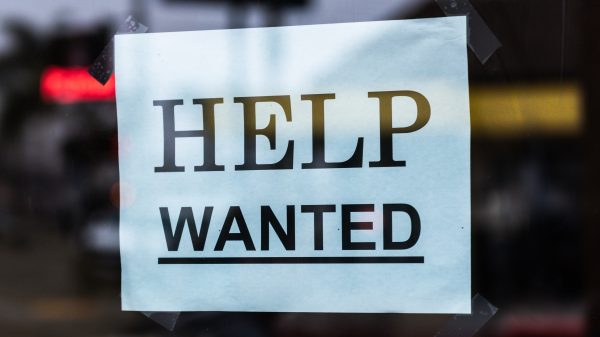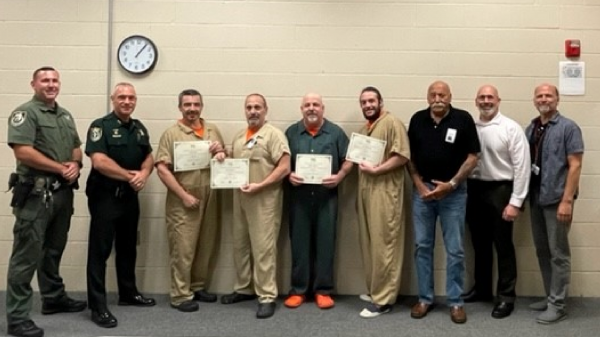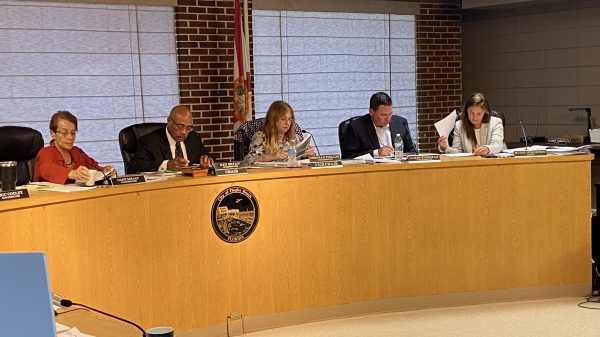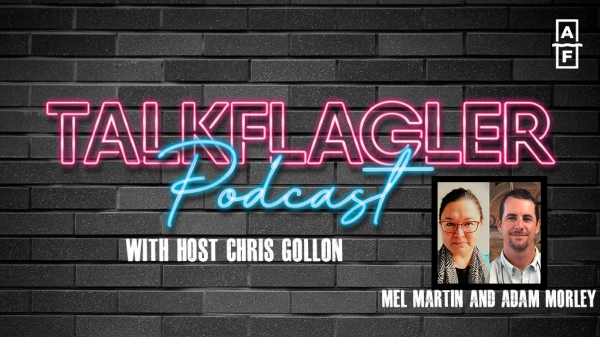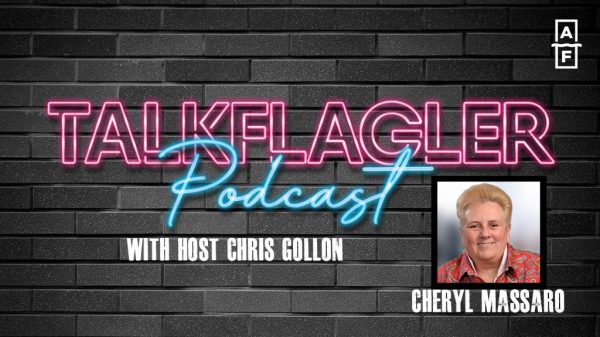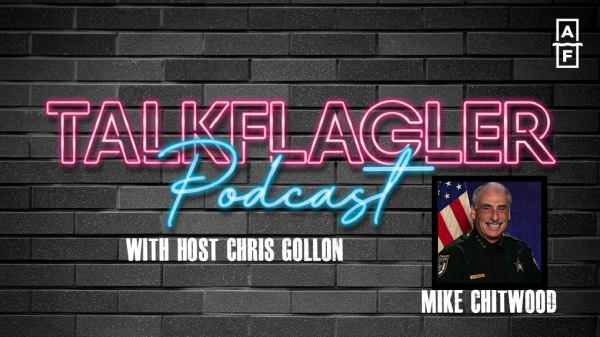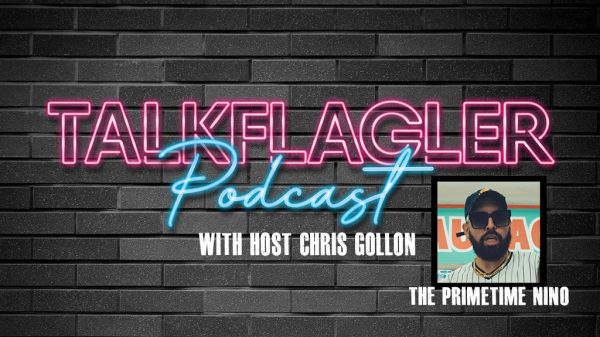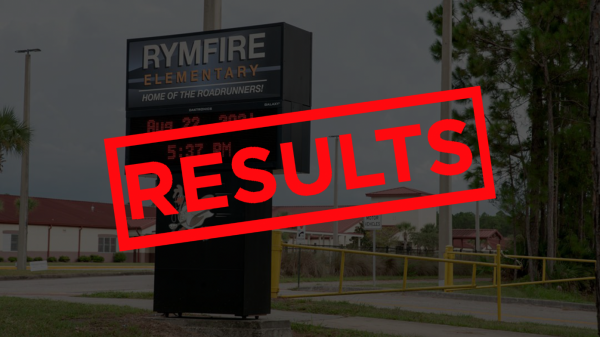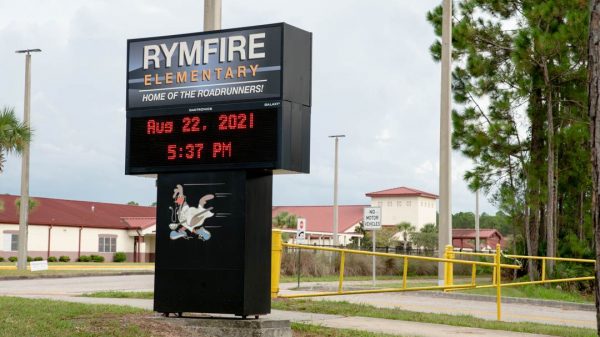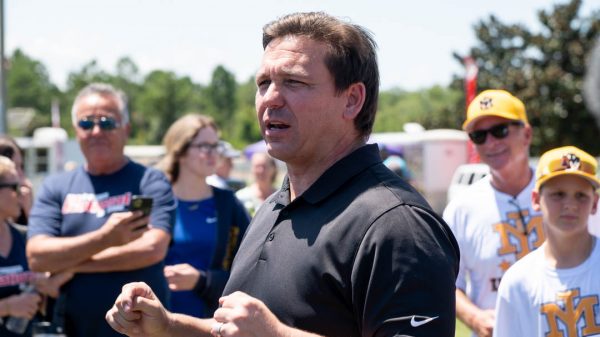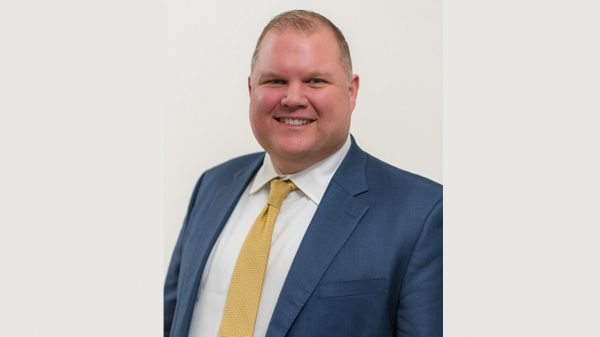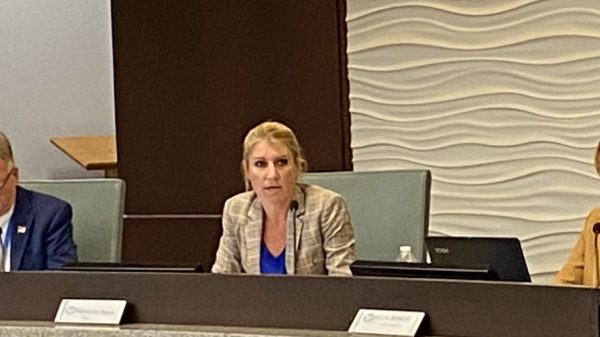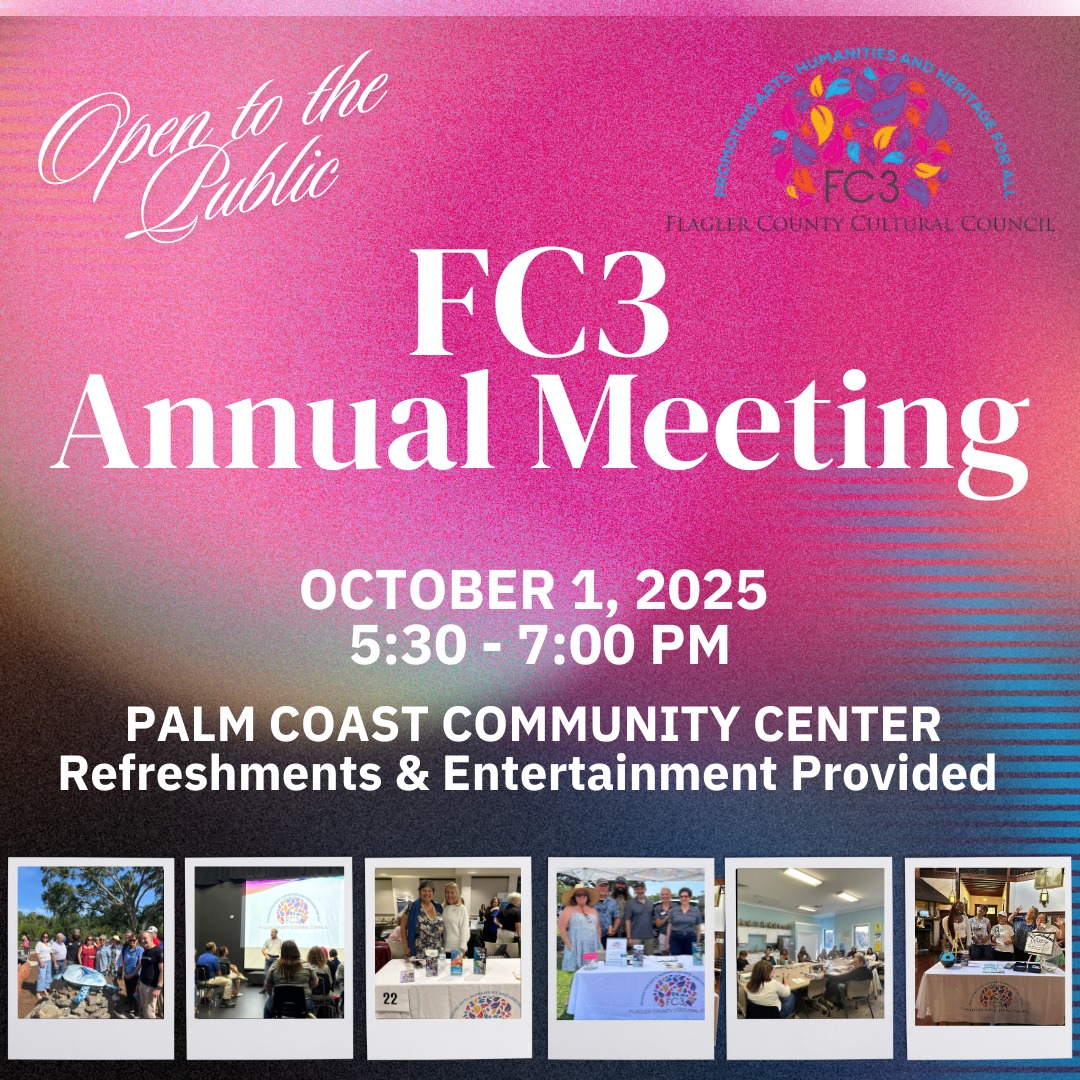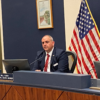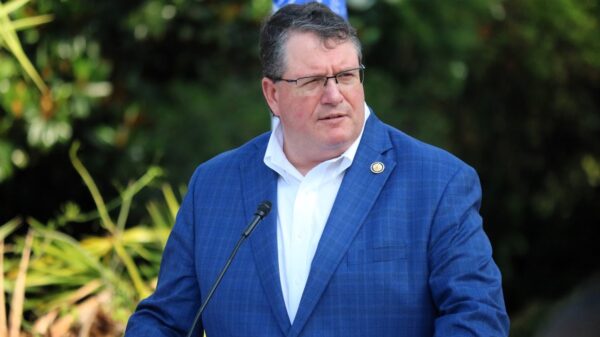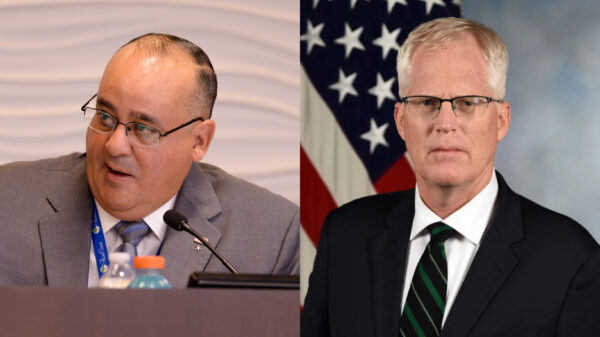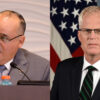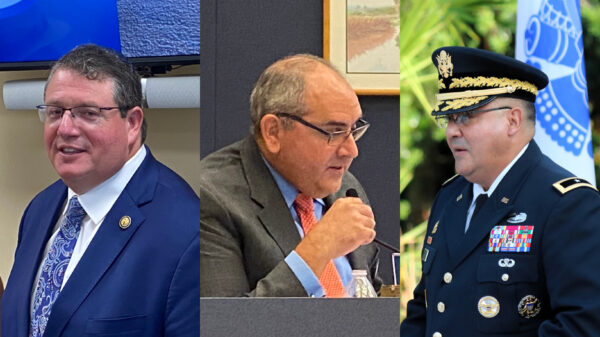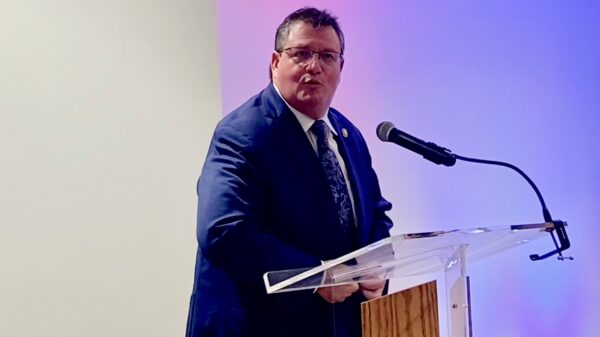When Michael Waltz resigned from the U.S. House of Representatives to become Donald Trump’s National Security Advisor, he vacated the remainder of his term representing Florida’s 6th congressional district. A special election is set for April 1st to fill out the end of Waltz’s term, before the winner has the chance to run for a full two years in 2026.
With the primary elections over, the race’s major candidates are known: Republican Randy Fine, Democrat Josh Weil, and Libertarian Andrew Parrott. Also running are Independent Randall Terry and write-in candidate Chuck Sheridan according to election records. Each major candidate has been contacted to conduct an interview ahead of the special election. What follows is that interview with Libertarian Andrew Parrott.
Click here to read Randy Fine’s interview
Click here to read Josh Weil’s interview
Chris Gollon: Libertarian candidates, like many other third party candidates, are often perceived as having little to no chance at electoral victory. With no Libertarian candidate having ever won federal office in American history, do you feel you have a shot?
Andrew Parrott: “I do, and I think it’s mostly because of the competition I was given by the major party candidates in this race. Randy Fine is a divisive figure in Florida, already not very well-liked. I can speak to people in Orlando and say, ‘I’m running against Randy Fine’, and they’ll say, ‘oh, gross, he’s terrible, I hope you win’ because of that. So there’s a good split in the Republican Party right now over, even though he’s Trump’s candidate, there are people that are kind of more of the MAGA movement that are looking for someone better, and I’m hoping to be that better.”
CG: Reportedly over 10,000 federal employees have been fired at the direction of Elon Musk’s Department of Government Efficiency. Do you agree with this as an effective way to cut down on government bureaucracy and reduce spending?
AP: “I do believe that it is a strategy. I would say that Elon Musk is moving fast, breaking things, and hopefully we’re resilient enough as a nation, as a government, to recover from anything that is wrongfully broken. So I’d say it should be effective. The Libertarian Party is the party of small government, and that’s one of the reasons that I joined up after being more closely associated with the Republicans for most of my life. But now I’ve given up on them because of all the promises that they’ve made of smaller governments. Any step in that direction is a good step.”
CG: Another target of the second Trump administration is DEI programs, or diversity, equity, and inclusion. Do you believe the presence of such programs in the public sector is a problem for America that’s worth addressing?
AP: “DEI is not necessarily the wisest way to hire people, and not the best way to get the best people necessarily for the jobs in the public sector. I would say, realistically, if in a perfect world we could do anything without any affirmative action or diversity-equity-inclusion, which essentially amounts to choosing people on the basis of race or from what we heard with the FAA, they were talking about people with extreme disabilities. While there should be a place for all people in the workforce, we shouldn’t choose them just because they are different, or not white, or black.
“When my dad was a federal law enforcement officer when I was growing up way back in the 80’s, he came home one day and told us the story of [when] he was helping to interview a group of new hires that the service wanted to take on. He was interviewing a black guy. My dad went to his supervisor and said, ‘hey, I got this guy, he’s going to work out great with us, everything is perfect’. And the supervisor said, ‘no, we have enough black people’. So it’s a knife that cuts both ways. We don’t want to give government the power to do something that we don’t want used against us. So if we start hiring by race, it really doesn’t work very well.”
CG: You recently retweeted a quote from Ron Paul advocating for no foreign aid. Do you believe in this step being taken for both economic and military aid?
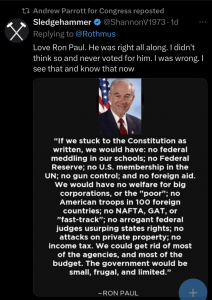
The referenced retweet by Parrott of a Ron Paul quote.
AP: “Well, when it comes to military aid, if we look at the current conflicts in Ukraine and Israel…the pathway of the money goes from Congress to Lockheed Martin to Israel, Ukraine, or…I’m sure we have some something going on in Democratic Republic of Congo as well, with all of the issues they’re having with Rwanda, but that’s a different story.”
CG: Congo is the eighth biggest recipient of aid, by the way. I have that stat handy.
AP: “There we go. So now these dollars, if they’re being used to fight wars…I’m very much anti-war and also anti-debt. If we allow Israel to go directly into debt with Lockheed Martin, I’d be much happier with things going that way. But as it goes with them taking out loans that make them beholden to us later on, that’s one of the things that’s really kind of screwed the world up at this point. It’s a lot of the allegiances that we try to make going back to Obama with the Arab Spring, with all the regime change that we were trying over there. It didn’t work out for the best all-around especially for the Arab Spring or the Arab people.
“So it’s not the best idea for us to go abroad searching for monsters which to destroy. I think it was Madison who said that we should be focused more, especially now with the $37 trillion in debt that we’re carrying, we should be focused more on our home life and the troubles that we have here now.”
CG: With that being said, if there arises a situation where, as some would view the Russo-Ukrainian War, a conflict could have potential ramifications for the national security of the United States in its outcome, is that something where you’d give more consideration to potentially intervening with military aid?
AP: “At this point in the game it seems to be that what President Trump is doing at the moment where he’s more willing to talk and stop the killing, I’m okay with that. You can’t negotiate with dead people. It’s just kind of the way that this all works. So if we can get to that point, I would in that particular situation, if I ran the zoo, negotiate a demilitarized zone and free movement for commerce in that area, I know the Donbas region and the Crimean peninsula are big issues in this whole fight. Since you both can’t agree to it, don’t bring your weapons to this area.
“There’s an area in the China-India border which is handled similarly, where there are no weapons allowed. So if any of the troops decide to fight with each other, they’re using pointed sticks, and it’s happened in the recent past. But just stopping people from dying, that’s the most important thing at this point.”
- Editor’s Note: Andrew Parrott’s answer was given prior to comments made by President Trump characterizing Ukraine as the responsible party in the Russo-Ukrainian War, and prior to the United States’ U.N. vote against condemning Russia as the war’s aggressor.
CG: Over two years removed from Roe v. Wade, Americans’ access to abortion varies by state. Presuming your view on the issue involves limited government: do you believe that, in the interest of individual freedoms, the federal government should pass legislation codifying abortion rights, or should limits be maintained on the federal government so that it continues to be left up to the states?
AP: “With the 10th Amendment, the way you pose the question, that is really kind of what drives the whole thing. Some people may call that a weak argument, but anything not enumerated to the federal government by the Constitution is left up to the states, so that’s where we can really begin with a lot of the troubles that we encounter today. What’s good for one state is not necessarily good for another. And I believe that the abortion issue is not something that can be solved legislatively. We can only really solve it culturally.
“Just like [how] the British drive on the wrong side of the road, they can’t come over here and do that. That’s just, you know, not how we do things here. We can’t park in the middle of the interstate. We have to have some standards. So while states are going to have to work this out, I think the best thing that we can do is not force people one way or the other. If we believe, like many of us do, that abortion is wrong, then we should be making the efforts to reach out to people who may be seeking them and try to help them out individually. But again, it’s not a problem we can really solve legislatively.”
CG: The December assassination of UnitedHealthCare CEO Brian Thompson sparked debate about the degree to which claim denials cause harm to patients. Do you believe that a free market solution can exist with protections, governmental or otherwise, against predatory insurance practices?
AP: “We are no longer patients [to insurers]. The insurance company is not in the business of patient care. They’re in the business of growing their business. And I understand that, I’m a capitalist through and through. When it comes to insurance, one of the things that I would like to see to repair that system is the portability of your health care. Like your car insurance, you [would be able to] change from Direct General to Geico to Progressive throughout your life at your whim, not tied to your job, because it’s so expensive. I would rather see a method [where] I provide my own health insurance, that way I get the care that I deserve and that also eliminates the pre-existing condition problems.
“What you’ll see in a lot of cases of large health insurance companies like Blue Cross Blue Shield being one of them at the company I used to work for, the company was actually self-insured and only administered by Blue Cross Blue Shield. So when I left there, they said, ‘nope, no Cobra, no nothing. Get out. No healthcare. You can’t even buy it from us, so don’t even try.’
“So after twenty-odd years of paying into that system, I walked away with nothing. [Let’s have] customers that can be better informed on their medical choices, have long term relationships with their health insurance providers, and also be able to have a doctor and not have to worry about networks. There’s actually a fellow here in Ocala that has a practice where you pay him a small amount a month, less than $100 usually, and you can go and talk to him anytime about health nutrition, diet, weight-lifting…they’re all covered in your $100 a month, roughly. So that’s a very good system for people that are not often going to the doctor where we can [rein] back catastrophic health insurance that is rarely used but paid for over your entire life. Much easier that way.”
CG: You’ve said you want to ‘fight to make sure our country’s veterans get the care they are owed’. What specific reforms do you believe would accomplish this?
AP: “Processing I know is a huge thing. I spoke with a Vietnam veteran a few weeks ago at the flea market, and he was having some trouble getting $500 for a mental health evaluation from the Veterans Administration. He served all over Southeast Asia. He had issues throughout his life, and the VA wasn’t helping him to get the simple things that he needed to have covered.
“So the streamlining of the system [is important]. I know that Trump’s appointment to the office has already made promises to make some drastic changes, mostly about the speed of acceptance or denial for claims. And one thing that we see a lot of is the non-service-related claims, and when it comes to mental health I think that’s one thing that we could definitely do to help our soldiers. I guess what we owe them is…they were promised certain things, housing, medical help, assistance with housing, with medical procedures and with healthcare in general. And they’re seeming to be treated more like we were discussing earlier with the insurance companies. ‘We’ll get back to you in a month or two’.
“When it comes to mental health, it’s really something that I consider to be very exigent. It needs to happen because we’ve lost far too many soldiers to suicide. We train them to fight, and then we bring them home and essentially tell them ‘good luck’. That’s not not the best way to deal with somebody. When the military prides themselves on, ‘we’re going to take all of you, we’re going to take your brain and we’re going to turn it into something that we want it to be’, they do a very good job of that, very effective, but not so much with the returning to civilian life as as much as we’d like to see.”
CG: You say you want to promote single subject spending bills to increase transparency and reduce wasteful government spending. As one voice out 435, how can voters expect you to be effective in enacting such sweeping change to how spending bills are structured?
AP: “Well, it’s going to come down to – I know this is a big thing with the Freedom Caucus, and I plan on working with them as closely as we can to try and change the culture of the Congress – that we all need to show up for work. We all need to serve our constituents. One of the ways that we’re getting to the point of the debt problem that we’re having is Nancy Pelosi saying about the Obamacare bill, ‘you have to pass the bill to find out what’s in it’, and the omnibus spending bill just before Christmas time, that was a very good example of what could be done to start the process. Enough people dug in their heels that the omnibus spending bill was not going to be passed with its 15,000 pages, and it was reduced to something like 1,500.
“I know my numbers are not exact so don’t quote me on those, but that’s a step in the right direction. To say, ‘we’re not going to vote for the omnibus spending continuing resolutions, all of those that continue the spending without any oversight’. So we, the citizens, if I remain a private citizen, need to hold the Congress accountable for what they’re doing. And there’s not a whole lot of that as well. I know a lot of people have given up on government and Congress, but I think that it’s still an institution that’s worth saving, and one of the ways to save it is to change the culture back to being very limited in the scope of what they are responsible for.”
CG: In the wake of the COVID-19 pandemic, is the federal government adequately prepared for the potential of another global pandemic?
AP: “The way they dealt with the last one did not seem very effective. The lockdown/not-lockdown. It was masks, no masks. We didn’t seem to have our stuff together. I’d like to think that, I would hope and pray, we don’t have another pandemic like that. I know that there have been scares of monkeypox and SARS, the bird flu scares that we’re going through now. I think they’re trying to prepare us to know that something is going to happen, but I pray nothing happens. And I think that dealing with things at the local level is possibly the best way to deal with them, but not in a not in any sort of authoritarian manner. You know, govern yourself as you will, but also your right to throw a punch ends where my nose begins. So we can’t go around coughing on people.”
Chris Gollon is a Flagler County resident since 2004, as well as a staple of the local independent music scene and avid observer of Central Florida politics, arts, and recreation.



